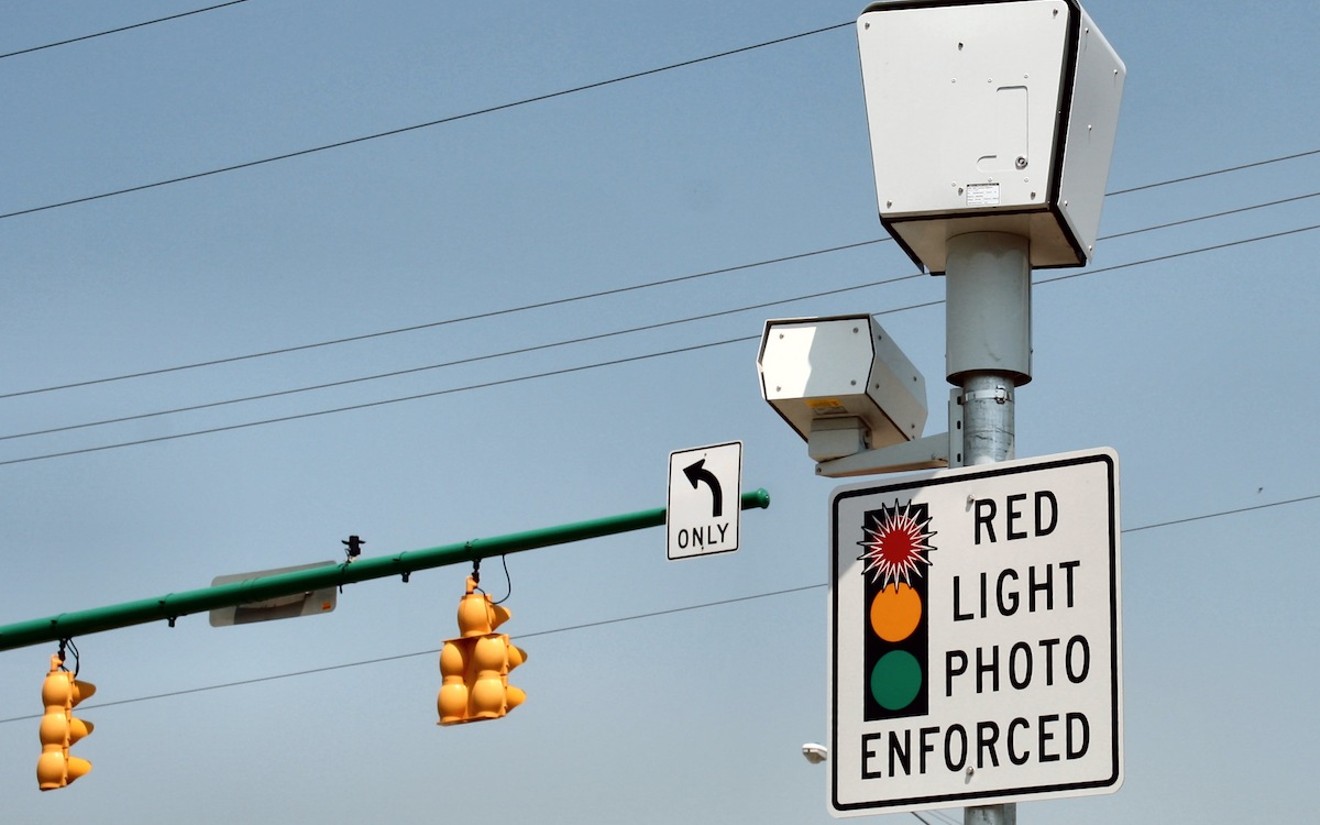But today, after years of public complaints that the cameras were little more than money-printing enterprises for ATS and municipalities, City of Miami commissioners voted unanimously to end its camera program and its contract with the company. The move is the first major task newly elected Mayor Francis Suarez and Commissioner Joe Carollo each wanted to undertake after winning elections last month.
Suarez said he wanted to kill the program because he thinks city's rent-squeezed residents can't afford extra, $100-plus tickets if the penalties don't seem to be providing the city any other sort of benefit.
"It's amazing how many people you hear where rent takes up 80 percent of their
Even thousand-year-old Commissioner Willy Gort had harsh words for ATS from the dais today. He said the red-light-camera program generates more complaints than any other issue — but he's seen no evidence that the program actually makes the roads safer or justifies citizens' anger.
"For the last three years, I've been telling those people, please bring us information [to back up] what the cameras are doing," Gort said. "I've been waiting three years for people to bring me information, and no one has brought me information."
Per the Miami Herald's David Smiley, the contract will end 60 days after the commission signs today's resolution. If you receive a ticket in the meantime, you still need to pay it.
Miami Commission unanimously voted to end the city's red light camera program. Should shut down in about two months. 60-day clock starts ticking from the time the resolution is signed and executed
— David Smiley (@NewsbySmiley) December 14, 2017
Cities across the nation have installed red-light cameras over the past decade in an effort to make roads safer — but after everyone adopted the surveillance tech, studies showed it doesn't seem to have mitigated accidents and in some cases has made roads more dangerous. City officials and camera companies have claimed that, by incentivizing drivers to stop fully at red lights, cities can cut down on "t-bone"-style car crashes, which tend to cause far more injuries and deaths.Good question. City attorney says if you get one, you gotta deal with it. Doesn't disappear with the termination of the contract https://t.co/NE62XiE6Qi
— David Smiley (@NewsbySmiley) December 14, 2017
But after
"The biggest takeaway is that overall, [the program] seems to have had little effect," Dominique Lord, a Texas A&M University researcher who worked on the Tribune study, said in 2014.
Pretty much everyone across Florida hates these things: Earlier this year, Miami state Sen. Jose Javier Rodriguez proposed cutting fees for right-light violations to a
Today, Carollo added from the dais that the City of Miami's yellow and red lights are rarely synchronized — meaning residents can't accurately gauge when a light will change.
"It's impossible for any individual to really be able to time a yellow light before it goes to a red light," he said.
Carollo did have one warning for residents: He said in the next year, he plans to "come up with other ideas" to make up for the money the city will lose by killing the program.












